Disclosure: This article contains affiliate links. We may earn a commission from purchases at no extra cost to you, which helps our travel content.
When most people think of Salzburg, their minds immediately jump to Julie Andrews twirling through Alpine meadows. But having spent a week here last fall while accompanying an Austrian basketball client, I discovered there's a whole other Salzburg that exists beyond the tourist trail. The city's baroque architecture might be the headliner, but just like in sports, it's often the unsung players on the bench who truly change the game. Today, I'm sharing my playbook for experiencing the authentic Salzburg that most visitors never see.
The Textile Traditions of Salzburg's Old Quarter
While most tourists are queuing up for Mozart's birthplace, I found myself drawn to the centuries-old textile traditions tucked away in Salzburg's winding streets. In the heart of the Altstadt (Old Town), I stumbled upon Heimatwerk, a cooperative preserving Austrian handicrafts. Here, local artisans create Trachtenstoffe – traditional Alpine fabrics with distinctive patterns that tell stories of regional identity.
What fascinated me most was discovering how these textile traditions connect to the city's salt trade history (Salzburg literally means 'Salt Fortress'). The wealth generated from salt allowed for the development of these intricate textile arts. It reminded me of how a star player's success often elevates the entire team's profile.
For the most authentic experience, I recommend arranging a private workshop with master weaver Frau Müller, whose family has been creating traditional Loden wool fabrics for generations. Her small workshop near Getreidegasse requires advance booking, but the hands-on experience of working with these heritage techniques is worth planning ahead. Before visiting, I picked up a pocket translator which proved invaluable during these specialized craft conversations where English wasn't always spoken.
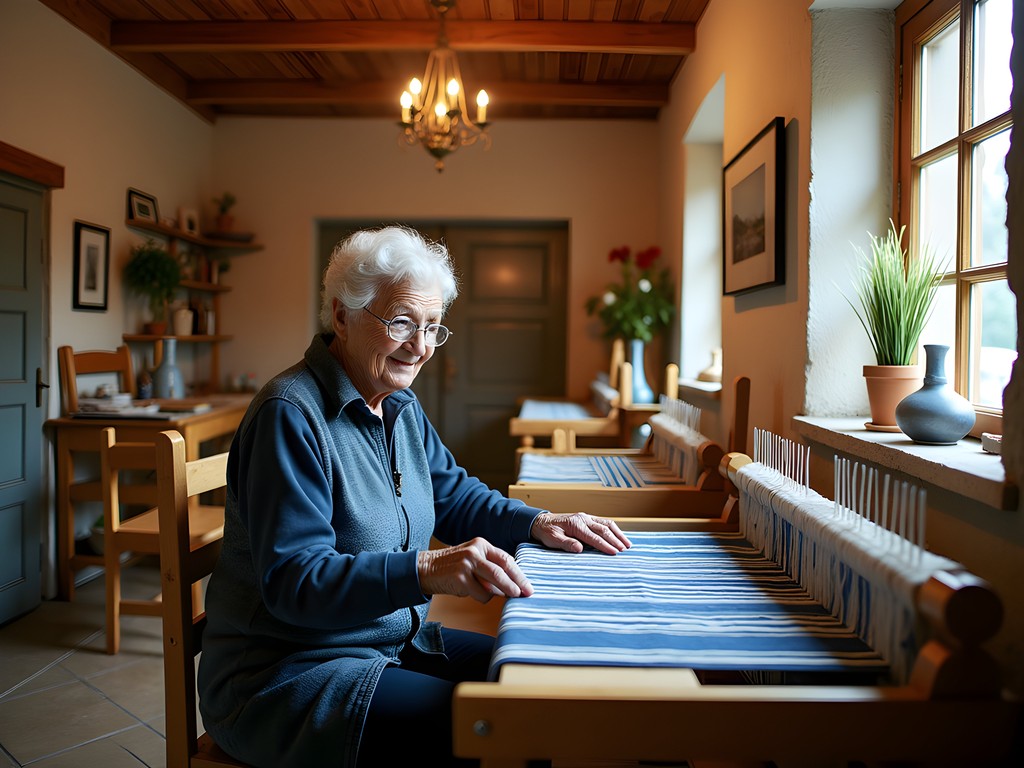
💡 Pro Tips
- Visit Heimatwerk on weekday mornings to avoid the few tourists who find it
- Book Frau Müller's workshop at least 2 weeks in advance via email
- Look for the distinctive blue and white stripe patterns unique to Salzburg's textile heritage
Morning Rituals: Salzburg's Café Culture Like a Local
In sports, the pre-game ritual is sacred. The same applies to mornings in Salzburg, where locals have elevated the café experience to an art form that few tourists truly understand. Forget the crowded cafés on tourist maps – real Salzburgers start their day at places like Café Bazar, a 100-year-old institution where the city's intellectuals, artists, and businesspeople converge.
I made it my morning headquarters, arriving by 7:30am when the light streams through the windows overlooking the Salzach River. Here's where you'll find locals reading physical newspapers (yes, they still exist!), engaging in thoughtful conversation, and practicing the fine art of Kaffeehaus culture. The waiters – professional career servers rather than students – remember your order by day two and won't rush you out the door.
The traditional breakfast includes fresh bread rolls with local butter and jam, paired with Einspänner coffee – a Viennese specialty with whipped cream that's made its way to Salzburg. I found my mornings here to be the perfect time to plan the day while using my travel planner to organize my sightseeing routes away from tour groups.
For the full experience, try to grab a table near the windows, bring something to read, and settle in for at least an hour. Order a Melange (similar to a cappuccino) and practice the local art of productive lingering.
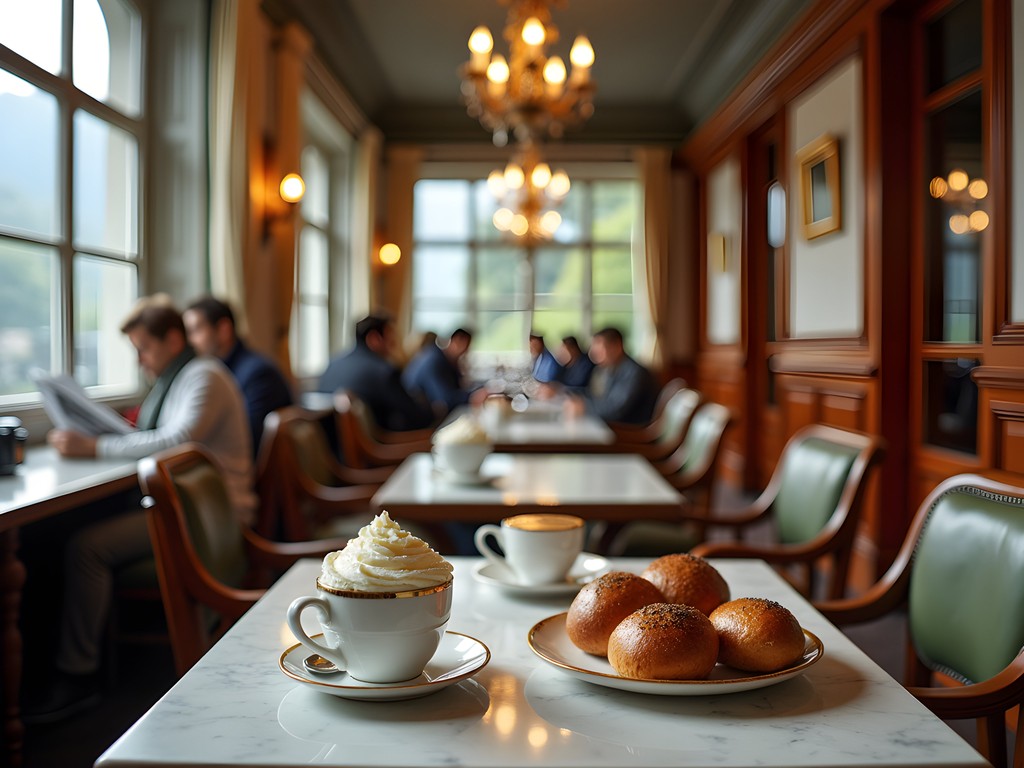
💡 Pro Tips
- Arrive before 8am for the authentic local experience
- It's perfectly acceptable to occupy a table for hours with just one coffee
- Try the house-made apricot preserves with your bread rolls
The Underground Farmers' Markets Only Locals Know About
While tourists flock to the main Grünmarkt, there's a network of smaller, producer-only markets that locals guard jealously. My favorite discovery was the Thursday afternoon market in the courtyard of St. Sebastian's Church. Here, farmers from the surrounding Alpine regions bring products you won't find in stores – from Pinzgauer cheese (a raw milk variety with distinctive herb notes) to foraged mushrooms and wild berries in season.
What makes these markets special isn't just the produce – it's the people. Unlike the tourist-oriented markets, these are working markets where locals actually do their shopping. Conversations happen in dialect, relationships between vendors and customers span generations, and the focus is entirely on quality rather than presentation.
During my visit, I picked up some local honey and wild herb mixtures that I later used in my cooking. I found my collapsible shopping bag essential for carrying my market finds through the city. The vendors appreciated my small effort to speak German and my interest in their products, often offering samples and cooking advice.
To find these markets, don't bother with official tourism websites. Instead, look for handwritten notices on community boards near residential areas or simply ask your accommodation host. The best markets rotate locations and sometimes only operate for a few hours, making them impossible to find unless you have local intelligence.
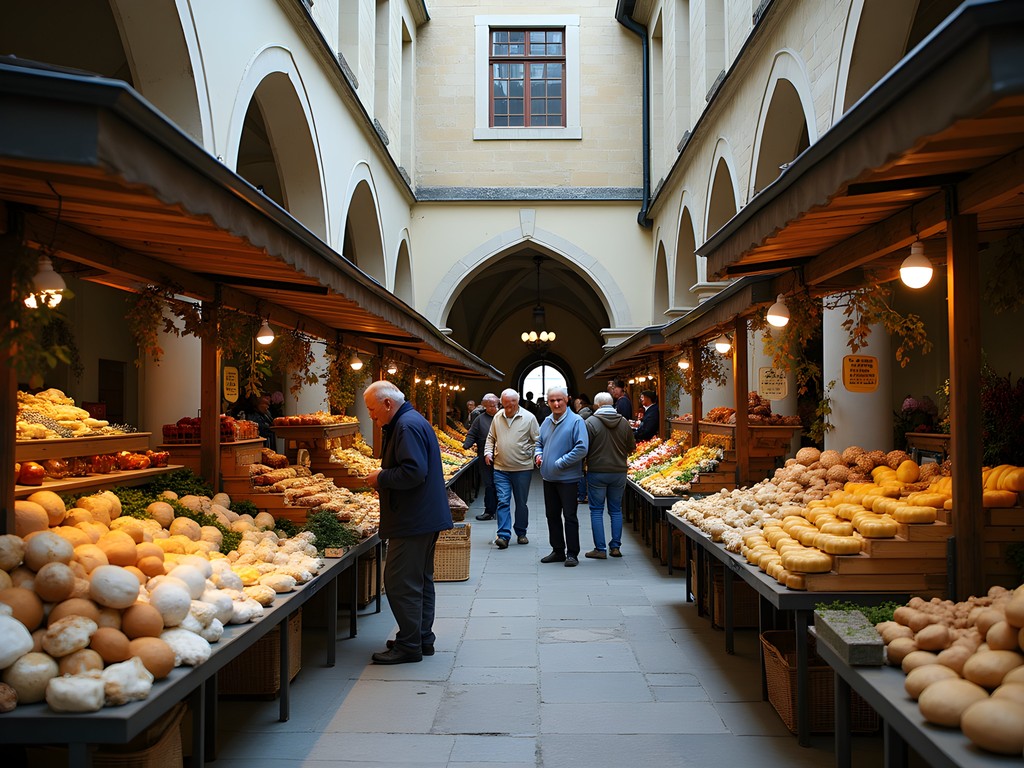
💡 Pro Tips
- Bring cash in small denominations – most vendors don't accept cards
- Shop between 3-5pm when locals are picking up items for dinner
- Learn a few basic German phrases to build rapport with vendors
Textile Hunting in Salzburg's Forgotten Quarters
My passion for textiles led me beyond the obvious shopping districts to Salzburg's residential neighborhoods, where I discovered family workshops still producing handmade linens, wool products, and traditional clothing. In the Nonntal district, just a 15-minute walk from the tourist center, I found a third-generation family creating hand-printed fabrics using techniques dating back to the 18th century.
What struck me most was how these textile traditions mirror what I've seen in my travels across Asia – the passing down of knowledge through generations, the pride in creating something by hand, and the struggle to maintain relevance in a mass-produced world. Just like how veteran players mentor rookies in sports, these master craftspeople are working to ensure their knowledge survives.
For serious textile enthusiasts, arrange a visit to Trachtenmode Schlager, where they still create traditional clothing using methods unchanged for centuries. While not inexpensive, their pieces represent living history and exceptional craftsmanship. I invested in a custom-made vest that incorporates traditional Alpine patterns with contemporary styling – something I can wear to business meetings that carries cultural significance.
To properly care for these textile treasures once home, I use a fabric steamer rather than ironing, which preserves the delicate fibers and handwork. When exploring these workshops, I also recommend carrying a notebook to record the stories behind specific techniques and patterns – information rarely found in guidebooks.
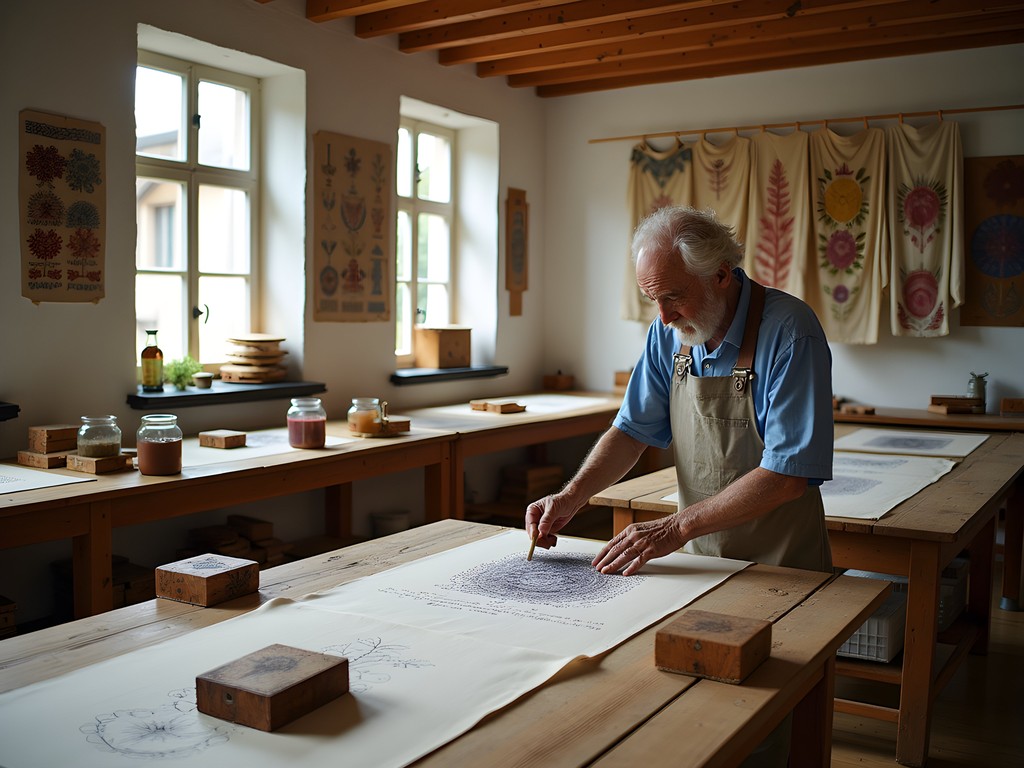
💡 Pro Tips
- Email workshops at least a week ahead to arrange visits
- Budget €200-300 for a quality handmade textile piece
- Ask specifically about the symbolism in traditional patterns – many tell stories about the region
Evening Retreats: The Local's Salzburg After Dark
When the day-trippers leave and the Sound of Music tours conclude, Salzburg transforms. Forget the tourist-trap Mozart dinner concerts – locals enjoy a sophisticated evening scene that few visitors ever discover. My favorite evening ritual became visiting the rooftop bar at Hotel Stein, known to locals as 'Steinterrasse.' With panoramic views of the Old Town and fortress, it's where Salzburg's creative class gathers.
What makes this spot special isn't just the view – it's the carefully curated wine list featuring small-production Austrian wines rarely exported. The bartenders are deeply knowledgeable and can guide you through regional specialties like Grüner Veltliner and the increasingly respected red Blaufränkisch varieties. I found myself comparing these wine experiences to how different basketball courts have their own 'home court advantage' – certain flavors that simply can't be replicated elsewhere.
For a truly local evening, head to Augustiner Bräustübl, a monastery brewery dating back to 1621. Unlike the tourist-oriented beer halls, locals know to bring their own food from the small market stalls in the front courtyard, paying only for their beer. The communal tables foster conversation, and I found myself in fascinating discussions with everyone from university professors to local artists.
During cooler fall evenings, I appreciated having my packable down jacket for the walk back through the old town, as temperatures can drop quickly after sunset in the Alpine region.
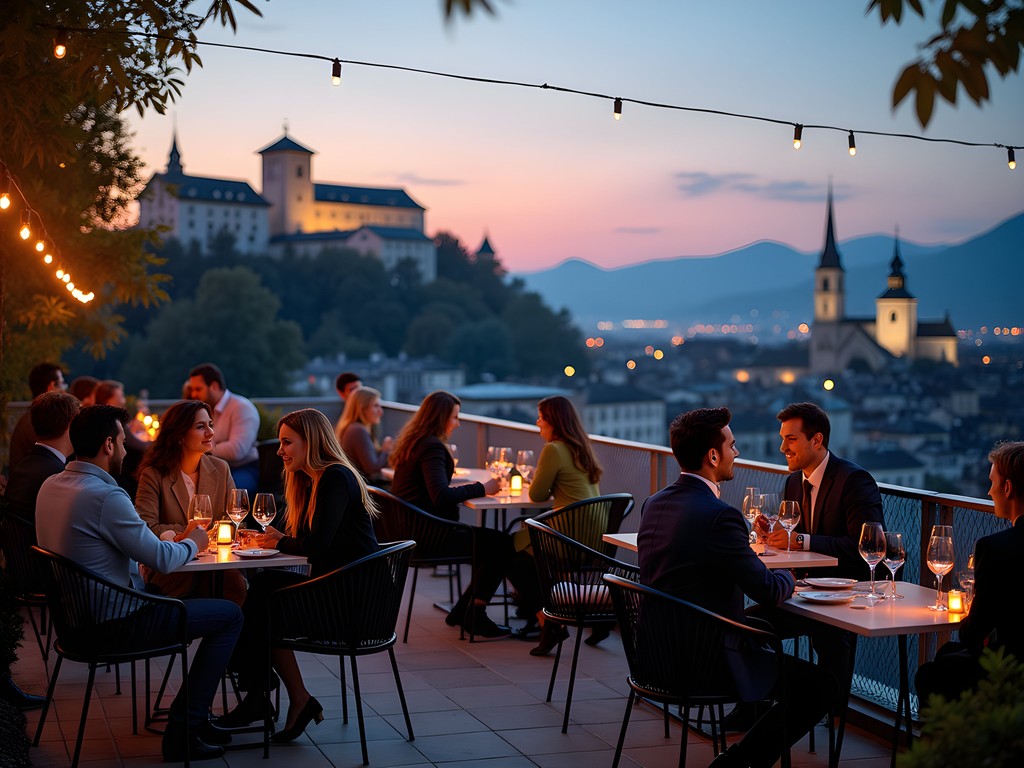
💡 Pro Tips
- At Steinterrasse, ask for a table on the west side for sunset views over the fortress
- At Augustiner, follow locals to the self-service beer taps and watch how they rinse their steins first
- The best night for meeting locals is Thursday, when many young professionals gather after work
Final Thoughts
Salzburg reminds me of those versatile athletes who excel in multiple positions but get pigeonholed for just one skill. Yes, The Sound of Music heritage is part of its identity, but the real Salzburg plays a much deeper game. By seeking out the textile traditions that first drew me here, I discovered a city that balances its tourist-facing persona with an authentic core that remains refreshingly intact.
The key to experiencing the real Salzburg lies in timing (early mornings and evenings), venturing just slightly beyond the main streets, and approaching the city with curiosity rather than a checklist. Much like in sports, where the magic often happens in the unscripted moments between plays, Salzburg's true character reveals itself in the spaces between the famous attractions.
As you plan your own Salzburg journey, I encourage you to use these local secrets as a starting point rather than a definitive guide. The joy comes in making your own discoveries – that hidden café, the craftsperson willing to share their knowledge, or the perfect viewpoint no guidebook mentions. The real Salzburg awaits, just a few steps away from where most visitors stop looking.
✨ Key Takeaways
- Visit textile workshops in the Old Quarter to connect with centuries of craft tradition
- Experience café culture like a local by arriving early and lingering long
- Seek out neighborhood farmers' markets for authentic food experiences
- Venture into residential areas for genuine textile hunting
- Enjoy Salzburg's sophisticated evening scene after the day-trippers leave
📋 Practical Information
Best Time to Visit
September to early November
Budget Estimate
$150-200 per day excluding accommodation
Recommended Duration
5-7 days
Difficulty Level
Moderate

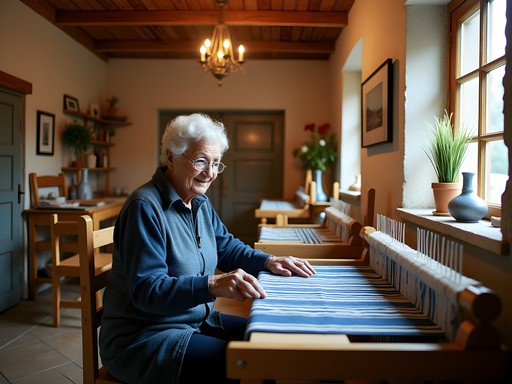
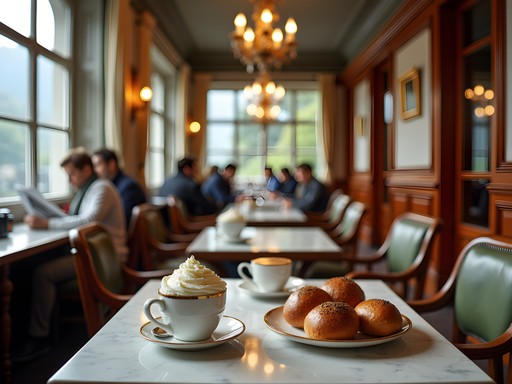
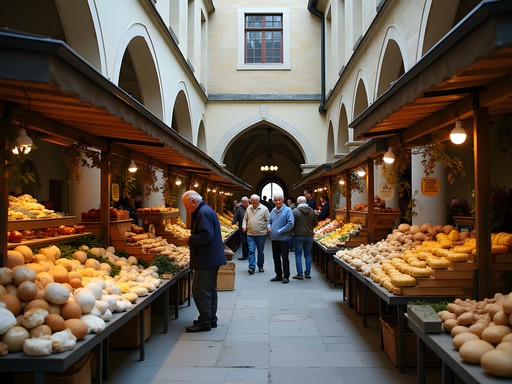
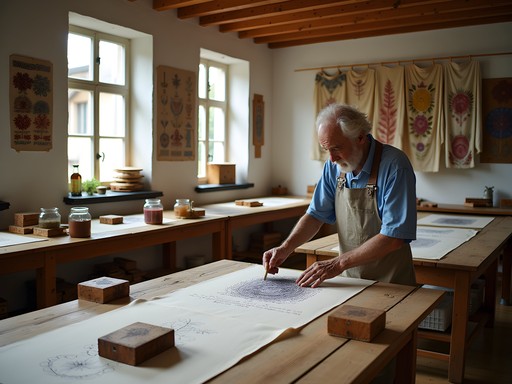
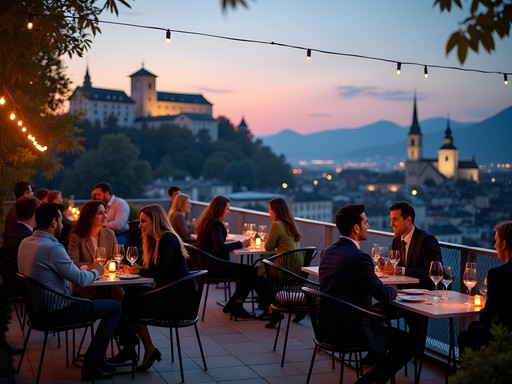


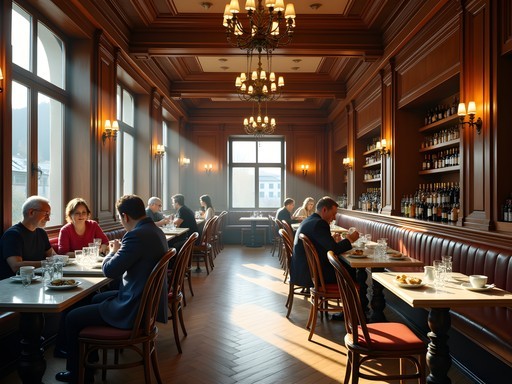
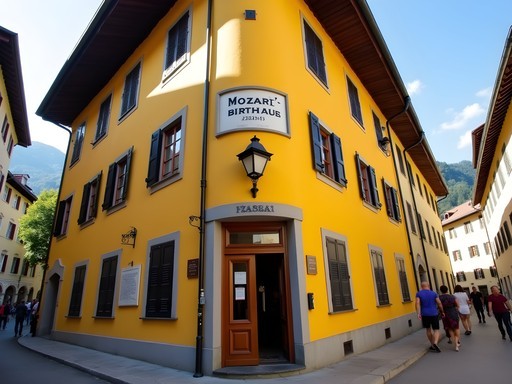
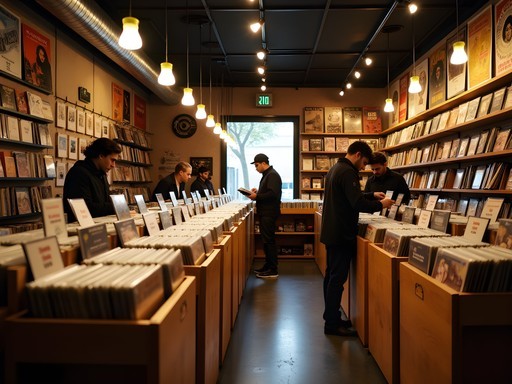
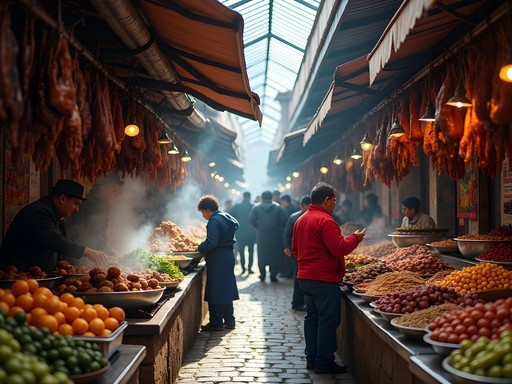
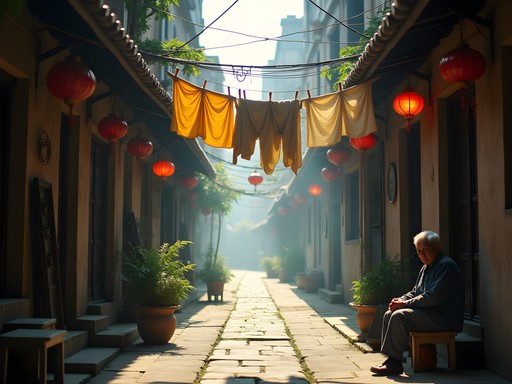
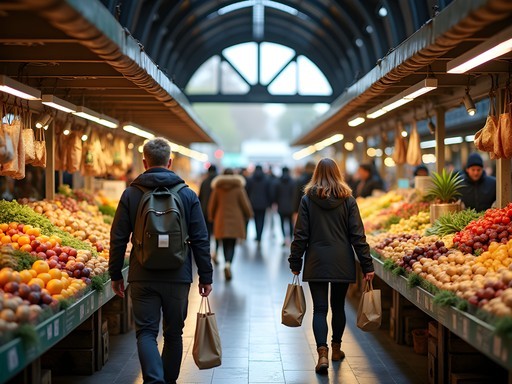
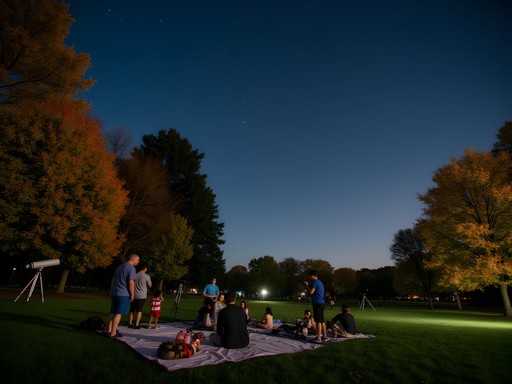
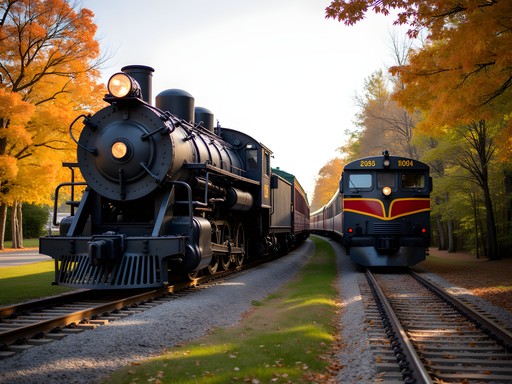
Comments
startime
This is so helpful! I visited Salzburg last summer and honestly felt a bit disappointed because everything felt so touristy. Wish I'd had this guide then. The farmers market tip is gold - I had no idea there were underground ones. Did you find the locals welcoming when you were exploring these less touristy spots? Sometimes I feel awkward being the obvious tourist in local spaces.
oceanqueen
I've found Austrians are super friendly if you make an effort! Even just trying a few German words helps
roamace
which cafes would you recommend for the morning ritual thing? heading there in 2 weeks
Bryce Diaz
Scott, this really resonates with me. I spent three weeks in Salzburg back in 2019 doing exactly what you're describing - avoiding the tourist traps and just wandering. Found this incredible little café near Nonntal where the owner would play classical guitar every morning. The locals would come in, read their papers, and it felt like stepping into another era. The textile angle is fascinating - I completely missed that on my visit. Those forgotten quarters you mention, are they walkable from the Altstadt or did you need to take transit? I'm heading back solo in April and want to explore those areas.
startime
that cafe sounds perfect! do you remember the name?
Bryce Diaz
I think it was Café Tomaselli but there were several small ones in that area. Just wander and follow the locals!
nomadzone
Great post, needed this!
mountainking
Going there next month, super excited now!!
oceanqueen
OMG YES!! I'm so tired of everyone only talking about Sound of Music tours! The textile shops sound amazing - can you share which specific streets you explored in the old quarter? Planning a trip for March and would love more details on those underground markets!
roamace
seconding this! which markets specifically?
Sophia Gomez
Scott, this really resonates! I did a business trip to Salzburg two years ago and stumbled into one of those neighborhood cafés you mentioned. Ended up chatting with a retired music teacher for an hour over Melange. She told me stories about growing up in the city during the 60s - way more memorable than any Sound of Music tour could ever be. The basketball client detail is interesting - I find some of my best travel discoveries happen when I'm working abroad and have to live like a local rather than sightsee. Those morning café rituals become your routine, not just a tourist experience.
mountainking
Love this!
backpackbuddy
This is my first trip to Europe - are the underground farmers markets easy to find or do you need directions? Also wondering about language barrier?
Sophia Gomez
Most vendors speak some English! And honestly, pointing and smiling works great at markets. I'd recommend grabbing a good translation app just in case. The markets are tucked away but locals are super friendly if you ask for help.
dreamtime
YES!! The textile shops are amazing! Found the coolest vintage linen tablecloth in one of those old quarter shops last year. Way better than the tourist trap souvenir stores on Getreidegasse.
mountainking
Do you remember which shop? Going in March!
dreamtime
I think it was on Steingasse? Small place with blue shutters. Didn't catch the name but you'll see it if you walk down that street!
smartclimber
That shot of the morning mist over the textile district is incredible! Was that taken from Mönchsberg? Perfect lighting!
Venture X
Premium card with 2X miles, $300 travel credit, Priority Pass